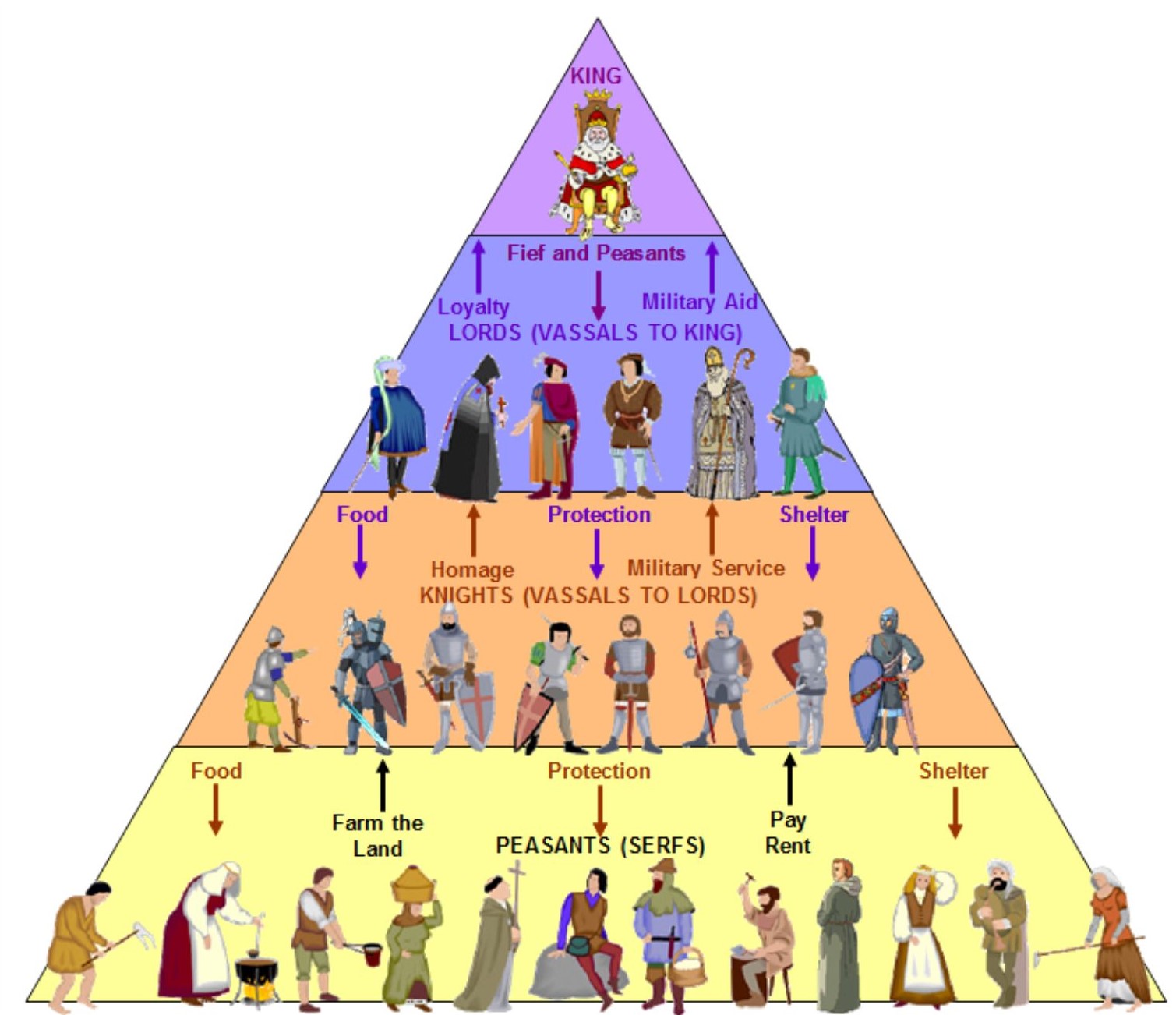They received lands from the king and devoted their time to cultural, educational and religious duties.
- The king.
- The clergy.
- The nobles.
- The bourgeoisie
- Peasants.
They were artisans and merchans.
- The king.
- The clergy.
- The nobles.
- The bourgeoisie
- Peasants.
They were serfs.
- The king.
- The clergy.
- The nobles.
- The bourgeoisie
- Peasants.
He was at the top of the feudal pyramid
- The king.
- The clergy.
- The nobles.
- The bourgeoisie
- Peasants.
They governed smaller domains of the kingdom in the Kings´s name.
- The king.
- The clergy.
- The nobles.
- The bourgeoisie
- Peasants.
They lived in boroughs.
- The king.
- The clergy.
- The nobles.
- The bourgeoisie
- Peasants.
People believed that God chose him to rule over them.
- The king.
- The clergy.
- The nobles.
- The bourgeoisie
- Peasants.
They worked on the Lord´s fief.
- The king.
- The clergy.
- The nobles.
- The bourgeoisie
- Peasants.
They promised eternal loyalty to the king at a Commendation Ceremony.
- The king.
- The clergy.
- The nobles.
- The bourgeoisie
- Peasants.
They were free but had no privileges.
- The king.
- The clergy.
- The nobles.
- The bourgeoisie
- Peasants.
 THE FEUDAL SYSTEM (by Juan Luis Serrano Pedrosa).
THE FEUDAL SYSTEM (by Juan Luis Serrano Pedrosa).